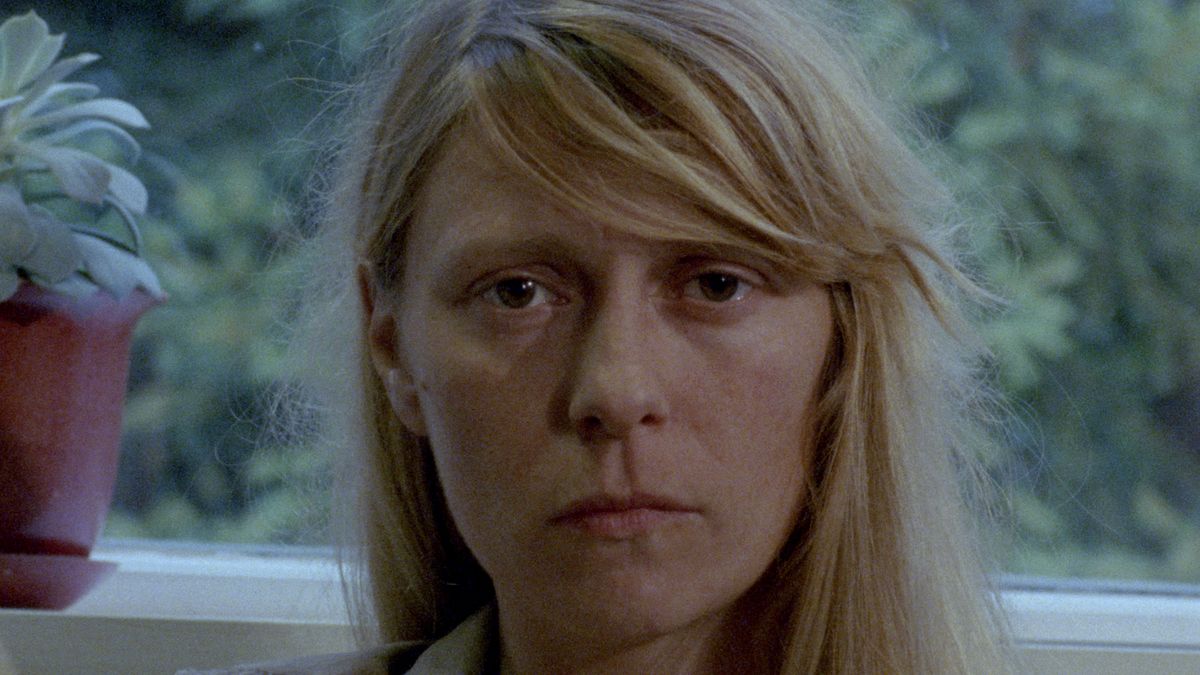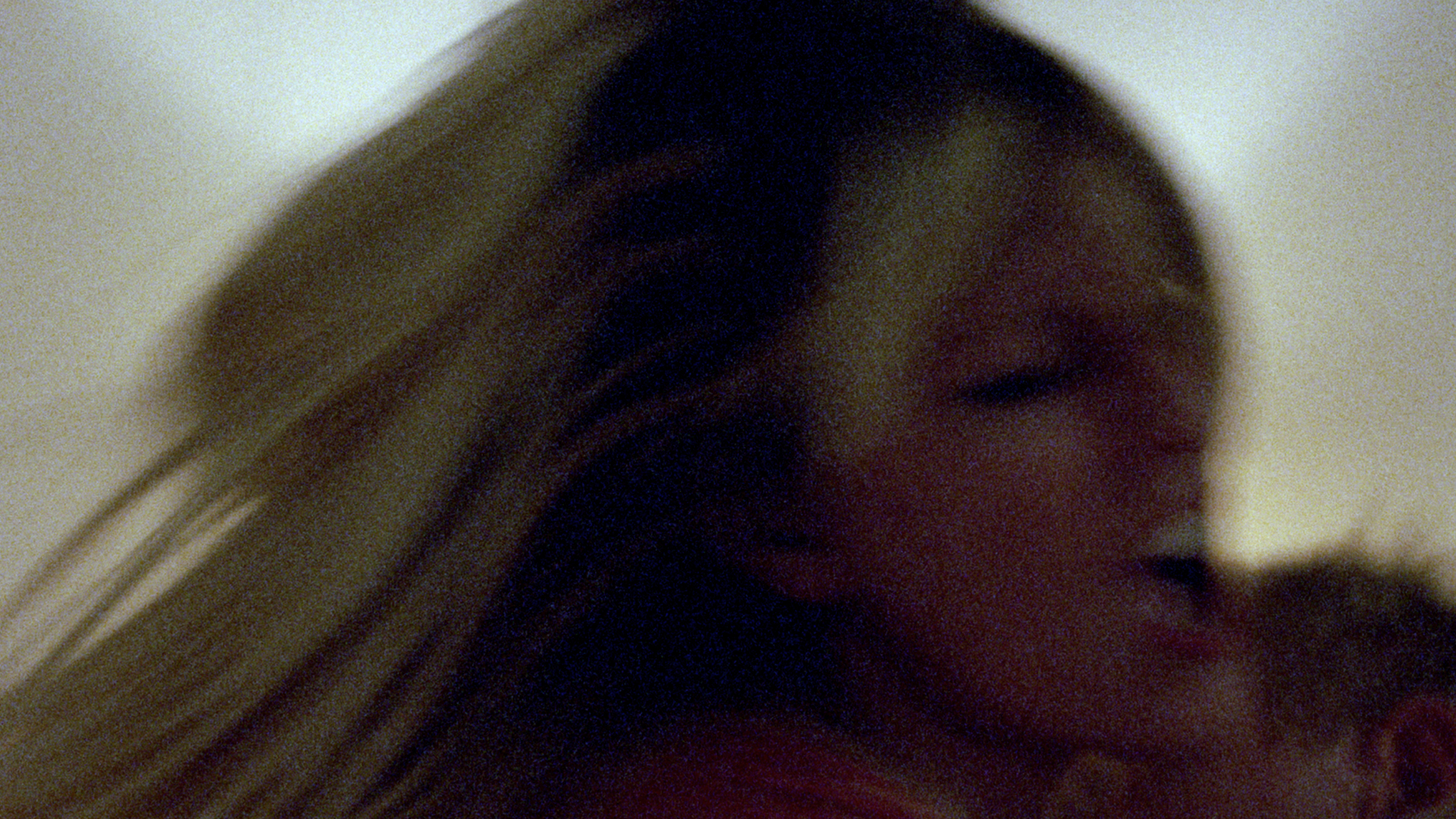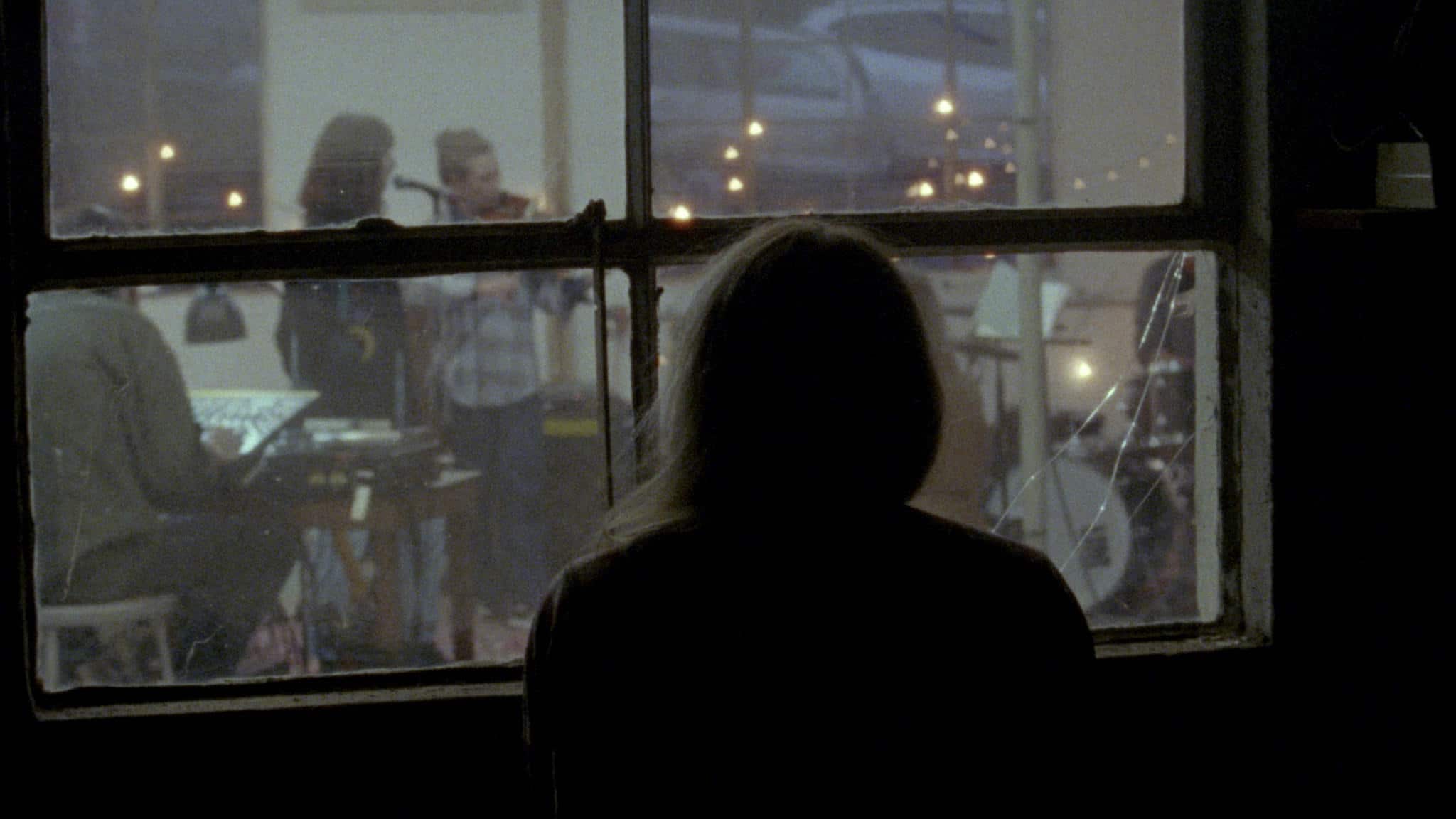The Directors of Slow Machine on Making One of 2021's Most Fascinating Films


I rented Paul Felten and Joe DeNardo's debut feature Slow Machine last month, and you should too. It's a bewildering, surprisingly funny, and completely unpredictable thriller that also features acting turns from Eleanor Friedberger, members of Gun Outfit, and Chloe Sevigny. Slow Machine is one of my favorite films of the year so far, and I was really happy to talk to Felten and DeNardo—the latter of whom is also a member of long-running NYC noise act Growing—about their creative process. We get into the film's themes a bit too, as well as its ending, but I don't think there's any real spoilers here as Slow Machine is the type of film that's impossible to spoil. You just have to see it for yourself.
Where did the creative impulse to make this film begin?
Paul Felten: Joe and I met a very long time ago in Olympia, where we both went to school at Evergreen. We became friends and worked on a film festival together that I directed and Joe programmed experimental films for. We always talked about making something, and then he moved to New York while I was in film school.
Finally, it became clear that the timing was right for us to make the kind of film we'd been talking about making: Something shot on film that incorporated the people we knew in film, music, and theater. I had a story that I was knocking around—a general notion about somebody from New York's creative class who comes in contact with an avatar of geopolitical mischief. I wrote a script, we raised money on Kickstarter, and we shot it over the course of four years.
Break down that four-year span for me.
Joe DeNardo: We started in 2015. We got a big chunk of it shot by early 2016, and then we ran out of funding, so a bunch of it sat in my fridge for a year while we sorted out getting money to shoot the rest of the scenes and get everything processed. A little bit of that time was not just financial, but sorting out everybody's schedules. As more time went on, it was harder to get the core crew together to shoot all the bits and bops that we needed.
Felten: There's always all this energy right at the beginning. "We're making a movie! Great!" Two years later, when we have to call someone and say, "There's this scene we need, can you come back?" It can be a bit hard to get the band back together, so to speak. But it happened, and it was great, and everyone was surprisingly committed over a long period of time.
Were there any moments where you thought the film wouldn't be completed?
Felten: Many. [Laughs] It was a great source of worry and depression for a while. There was film sitting in Joe's refrigerator that I was pretty sure was in focus and had good stuff on it. It sat there for a year while we thought about who would swoop in and help us finish it. We didn't think it through. [Laughs] The whole thing was conceived as something that would have the freedom of being made in our friends' spare time, but the downside is that we didn't start with all the money in the bank. Luckily, some great producers-slash-investors came in to help us finish.

Tell me more about the financial ups and downs of fundraising.
Felten: We got the bulk of the money to shoot through a Kickstarter campaign that we were lucky enough to have Eleanor and Chloe Sevigny be in the video for. I mean, nobody knew who we were. People knew Joe's music, but nobody knew who I was. So they were kind enough to come and help us shill for the initial $30,000 that we thought we needed to shoot from a budget that was ballpark, based on other stuff we'd seen that was shot with a similar model.
And we shot most of it with that money, but the sound, color, and expensive and necessary post-production processes, we hadn't anticipated the cost of. We went into this very naïvely, which was perhaps a strength, but it gave me a lot of sleepless nights. Our friends would be like, "How's Slow Machine going?" And we'd be like, "I don't know, man."
DeNardo: We were also overconfident about some grants we'd signed up for, so when those didn't come through, that was a sizable chunk that we hadn't anticipated not having. Luckily, through some other film avenues that Paul worked and did screenwriting for, he knew some producers who were keen about the scenes that we'd cut to help us finish it. So it was ups and downs.
Tell me about the decision to shoot on film.
DeNardo: It's our mutually favorite format of all the things we've seen in our moviegoing experience. When Growing slowed down in 2011, having studied still photography and film and video in school, I had the time to dig into 16mm as an amateur to learn more about it and get some of the cameras. I started shooting short films on 16mm, so I had some experience there. In terms of limitations, we looked at how expensive it is to rent bigger, fancier, newer high-end video cameras and compared it to my 16mm rig that I'd paid for on my own.
It was a non-expense, and after we figured out the processing vs. rental, we realized that since it was the format we wanted the film to look like, why shoot on something different just to get it to look like that later? The only issue was how much raw stuff we could buy and how to mete it out across the shoot dates. But Paul enlisted some really talented actors that rose to the limitations of how we got footage, and appreciated the lack of hard drive hours that could be expelled over and over again. The limited takes were a good thing.
Felten: The actors were really happy we weren't doing interminable coverage. It forced us to make decisions and plan in a way that was helpful to me as a first-time director working with actors more experienced than I was. To have the freedom of a very small crew and intimate setting, I was excited about that as an experiment.
DeNardo: There's four film magazines and they each hold ten minutes, so you shoot a certain amount and then you have to stop, because we didn't have a PA loading magazines the whole time. So we'd have to stop and I'd have to reload all the magazines, which gives everyone a break to rehash the scene and go over things that are good and bad. I think the actors appreciated that.
Felten: They felt trusted. What we used in the final cut of this movie are mostly second or third takes. We didn't have a ton of footage. How much was it, Joe—nine, ten hours?
DeNardo: Yeah, something like that.

The act of performance itself seems like one of the themes in the film.
Felten: I've come to see it as a film about a particularly anxious but formative and, to some extent, fruitful period in the main character's life. We all have those periods in our lives—whether they last a month or a couple of years—where we feel like we can afford to be mercurial and experimental with who we spend time around, who we pretend to be. Combined with that freedom is a whole host of anxious feelings underneath, or at least it was for me, and I was interested in capturing that feeling in the script. It's a film about performance, but also about being confused about one's existence and turning that into something that's productive and hungry.
DeNardo: Paul and I had seen a lot of films and talked about how poorly the art of making music is represented in movies. We wanted this backdrop to be more akin to what we knew, with myself as a musician and Paul as friends with a lot of musicians. We wanted to provide a texture to the rhythm and have them work concurrently together.
There's a mundanity to the footage with Eleanor and the band recording music—especially the playback scene in the living room. Having sat in on stuff like that in the past, it felt pretty true to life. Joe, with regards to your history as part of Growing, what level of personal and shared experience went into reproducing that feeling with such clarity?
DeNardo: Every level. They're all friends of mine to different degrees. We certainly allowed them to do different things in different takes, and to act as naturally as they thought they would in a scenario they'd all been in before. They hadn't all played together much—there's two people from Gun Outfit, one person who played with Eleanor before, my friend Will who played drums hadn't played with any of them—and we wanted it to be a situation where they were learning the song and hadn't done it before. What does that look like? It should feel pretty accurate to what we've all experienced before.
Felten: One of the things we talked about before we started shooting is contrasting the mundanity of a song—practicing it and listening to it—to some of the heightened artifice of the scenes between the fictional characters. We were hoping that would be a rhythmically interesting contrast.
I've been thinking about the ending of the film since I saw it. It really takes you aback.
Felten: A lot of what this movie was to me was people telling each other stories about the recent past and other projects they were working on. I liked the idea of ending the movie with Stephanie—far in the future from the time that most of the movie is spent in—still getting lost in storytelling. The idea of her telling a story to a child that became increasingly dark and potentially inappropriate, we could still tell she was getting lost in the act. It's an act of outward communication and a way for her to stay in herself. Joe and I talked a lot about whether that scene was too precious or put too much punctuation on what had come before. But I think ultimately it does work as a coda. I hope it does. We're still taking a poll about this. [Laughs]
DeNardo: I've warmed up to it a lot. The editing process was tough, and we assembled the movie in a lot of different ways, and I was struggling with the final scene in ways that now I think were more about the very miniature clips before she started the story. The story is quite purposeful. It's meaningful to see this character spin one more yarn, even if it's just for their kid, and to get totally engrossed in it. It's the one true aspect of this person, even as you've been confused about who she actually is. It's the one constant, and you know it now.
Are you guys thinking about your next feature? Any lessons taken away from this experience that you'd carry over to that next feature?
Felten: We are hopefully going to make another movie, if people will help us do that. There is a script. The first thing we learned is that it would be nice to shoot it in three weeks instead of four years—and to have all the money before, so we can finish it. It's a very simple lesson that we probably should've known.
DeNardo: There'll be other stuff that we haven't planned for.
Felten: The other thing we learned from this is that we also want to continue to work with small crews and very good actors, whether they're from film or theater, combined with non-professional actors to make up a multi-disciplinary cast.
DeNardo: The idea is to do it smartly and concretely without blowing it up into something that's too big. The intimacy we had on set was super productive and something we want to strive for for the next thing.